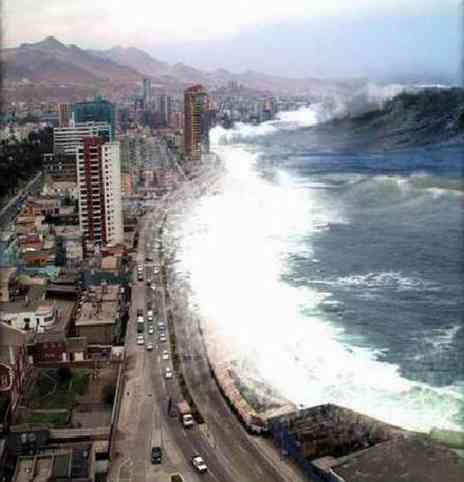
STAFF REPORTER
As Britain and Iran narrowed their differences over 15 British naval personnel seized in the Persian Gulf, the Canadian hero of the 1979 Tehran hostage crisis praised London's efforts to end the standoff, but warned the situation is still volatile.
"Britain has handled the situation very well," former Iran ambassador Ken Taylor said in a phone interview from New York. "They have done just the right thing, anticipating some Iranian statements and criticizing others in an appropriate way without increasing tensions."
But Taylor, who helped six American diplomats escape Tehran during a U.S. embassy hostage-taking, added, "this playing field is mined with dynamite. The incident itself may not be comparable with what happened back then, but tensions are at a very high level to start with."
The heat lowered a notch yesterday as Tehran's top negotiator, Ali Larijani, announced that "there is no need for any trial" of the 15 British sailors and marines who were captured.
Iran's state radio network, meanwhile, said it would no longer air video "confessions" of the captives, reflecting "positive changes" in Britain's negotiating stance, including hints that the London government was willing to find ways of avoiding confusion over national boundaries in the Persian Gulf.
The conciliatory moves averted what might have been Britain's worst diplomatic nightmare, with the captives paraded in court and threatened with draconian punishment.
In that worst-case scenario, analysts say, the U.S. might enter the struggle, leading to an escalating military confrontation and an oil price spike. If sanctions were dramatically widened against banks doing business with Iran, an international currency shock could follow.
"This issue can be resolved and there is no need for any trial," Larijani, secretary of Iran's Supreme National Security Council, told Britain's Channel 4 News television yesterday. But he added "there should be a delegation to review the case" and decide whose territorial waters the service people were sailing in when they were taken by Iran 12 days ago.
Britain insists they were on a routine monitoring mission in Iraqi waters under a United Nations mandate, but Iran charges they were trespassing in their territory.
"We must understand how significant claims to the waterways are in this region," said Saeed Rahnema, head of the School of Public Policy and Administration at York University. "The Iran-Iraq war was fought over the Shatt al Arab," a waterway flanking the two countries, he recalled. The combined death toll was more than 1 million.
And, Taylor said, "we shouldn't forget that Iraq's civil war is raging within 15 minutes of where those (Britons) were apprehended." The standoff over Iran's uranium enrichment program also became more dangerous after UN sanctions were tightened last month.
But Taylor said, Iran has shown it does not want to increase tensions over the seizure of the sailors and marines. "(They) made it clear they don't want a scenario like the one three decades ago, with students running amok at the British embassy. At the American embassy there were no police, no security and no soldiers. Yesterday riot police were protecting the British embassy, there was law and order and a government in charge."
Stones and fireworks were thrown at the British embassy in Tehran on Sunday as more than 200 students marched demanding the prisoners be put on trial for espionage. In language reminiscent of the U.S. embassy hostage-taking they also demanded the expulsion of the ambassador and closure of the "den of spies."
Larijani yesterday called on all parties in the naval standoff to stop using "the language of force," while Britain's Foreign Office said it shared with Iran a "desire to make early progress" in ending the dispute.
The incident is far less dramatic than the U.S. faceoff – the most serious in decades of mutual suspicion and hostility. But it is only one of a number of crises in which Iran and the West have locked horns.
As far back as 1946, the Soviet Union helped to launch the Cold War by refusing to withdraw from Iran after World War II.
In 1953, a U.S.-backed coup overthrew nationalist prime minister Mohammed Mossadegh after he nationalized the British-owned oil industry, leaving a legacy of Iranian bitterness against the West.
In 1979, relations soured further when Ayatollah Ruhollah Khomeini took power and declared an Islamic Republic, allowing Islamic students to storm the U.S. embassy and take 52 Americans hostage, in a standoff that lasted 444 days.
The action set a hostile tone that continued in the 1980s, when a U.S. Navy ship shot down an Iranian airliner, killing 290 passengers, and Khomeini declared a fatwa on British author Salman Rushdie, accusing him of blasphemy for his book The Satanic Verses.
In the 1990s, the U.S. slapped oil and trade sanctions on Iran, accusing it of sponsoring terrorism and committing appalling human rights violations – a situation that was compounded after Iran admitted in 2003 it was producing plutonium, which it said was for peaceful purposes.
Tehran captured eight British servicemen a year later in the same waters where the current group were seized, but released them three days later. Canada's relations with Iran also worsened in 2003 when Montreal photojournalist Zahra Kazemi died of massive injuries in an Iranian prison.

No comments:
Post a Comment